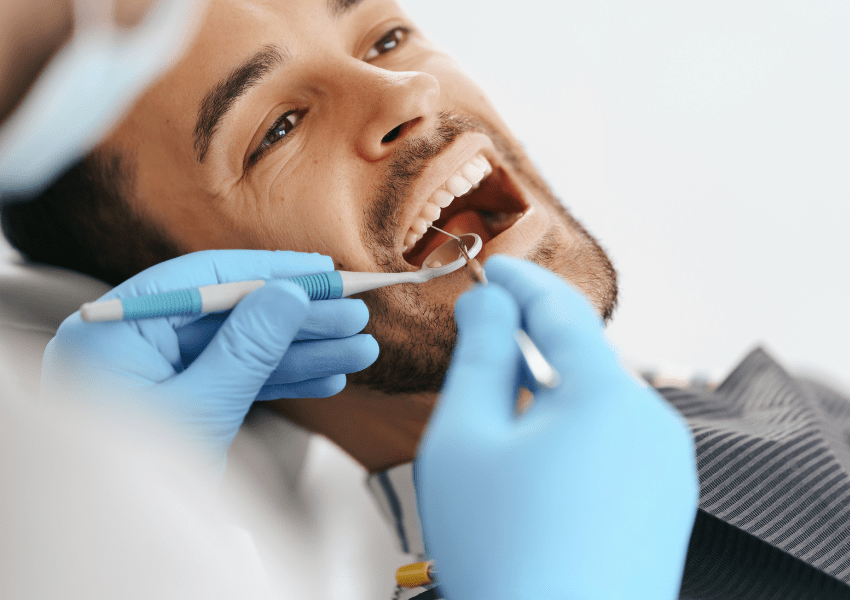Emergency dentistry provides immediate care for urgent dental problems that cannot wait for a regular appointment. From severe toothaches to broken restorations, timely intervention can prevent complications, preserve oral health, and relieve pain. Understanding which dental issues require emergency dentistry helps patients seek prompt treatment when it matters most.
Severe Tooth Pain
Intense tooth pain that disrupts your daily activities requires emergency dental care. This pain often signals serious problems, such as infections, deep decay, or damaged nerves inside your teeth. The discomfort often worsens when you eat, drink, or lie down.
Sharp, shooting pain that radiates to your jaw, ear, or head needs immediate attention. Throbbing pain that keeps you awake at night also qualifies as a dental emergency. These symptoms often indicate that bacteria have reached the tooth’s inner pulp, which contains nerves and blood vessels.
Swelling around the painful tooth makes the situation more serious. The swelling may spread to your face, neck, or jaw. Fever, alongside tooth pain, suggests an infection that requires prompt treatment. Emergency dentistry addresses these problems quickly to prevent the infection from spreading to other parts of your body.
Knocked-Out or Dislodged Teeth
A knocked-out tooth is one of the time-sensitive dental emergencies. Quick action within the first hour greatly improves the chances of saving the tooth. Handle the tooth carefully by the crown, avoiding touching the root surface.
Rinse the tooth gently with clean water if it appears dirty. Try to place it back in its socket if possible, holding it in place with gentle pressure. If reinsertion proves impossible, store the tooth in milk or saliva until you are able to access emergency dentistry services.
Partially dislodged teeth also need immediate attention. These teeth may appear loose, tilted, or pushed into the gum. Avoid touching or moving the tooth with your tongue or fingers. The supporting structures around the tooth may heal properly with quick professional treatment.
Broken or Cracked Teeth
Fractured teeth vary widely in severity and urgency. Small chips in front teeth may be addressed during regular dental appointments, but larger breaks require immediate care. Deep cracks that reach the tooth’s inner layers often cause significant pain and require emergency treatment.
Vertical cracks running down the tooth’s length create serious problems. These fractures may split the tooth completely if left untreated. Horizontal cracks near the gum line also need prompt attention because they weaken the entire tooth structure.
Sharp edges from broken teeth may cut your tongue, cheeks, or lips. Cover these edges with dental wax or sugar-free gum until you receive professional treatment. Save any large pieces of the broken tooth, as dentists may be able to reattach them.
Dental Abscesses
Abscesses are serious infections that develop around tooth roots or in the spaces between teeth and gums. These infections appear as painful, pus-filled bumps on the gums. The surrounding tissue often becomes swollen, red, and tender to touch.
Facial swelling that affects your ability to open your mouth or swallow requires immediate emergency care. This swelling may spread rapidly and become life-threatening if the infection enters your bloodstream. Difficulty breathing or swallowing demands immediate medical attention.
Bad taste in your mouth or persistent bad breath may indicate an abscess. Pus drainage from the infected area often produces these unpleasant symptoms. Fever, chills, and a general feeling of illness accompany severe dental infections.
Book Your Emergency Dentistry Appointment Today
Dental emergencies demand quick professional attention to prevent serious complications. Severe tooth pain, knocked-out teeth, significant fractures, and abscesses all qualify as urgent situations requiring emergency dentistry. Acting quickly when these problems occur protects your oral health and may save your natural teeth. Contact an emergency dentistry service near you to book an appointment if you experience any of these dental emergencies.









